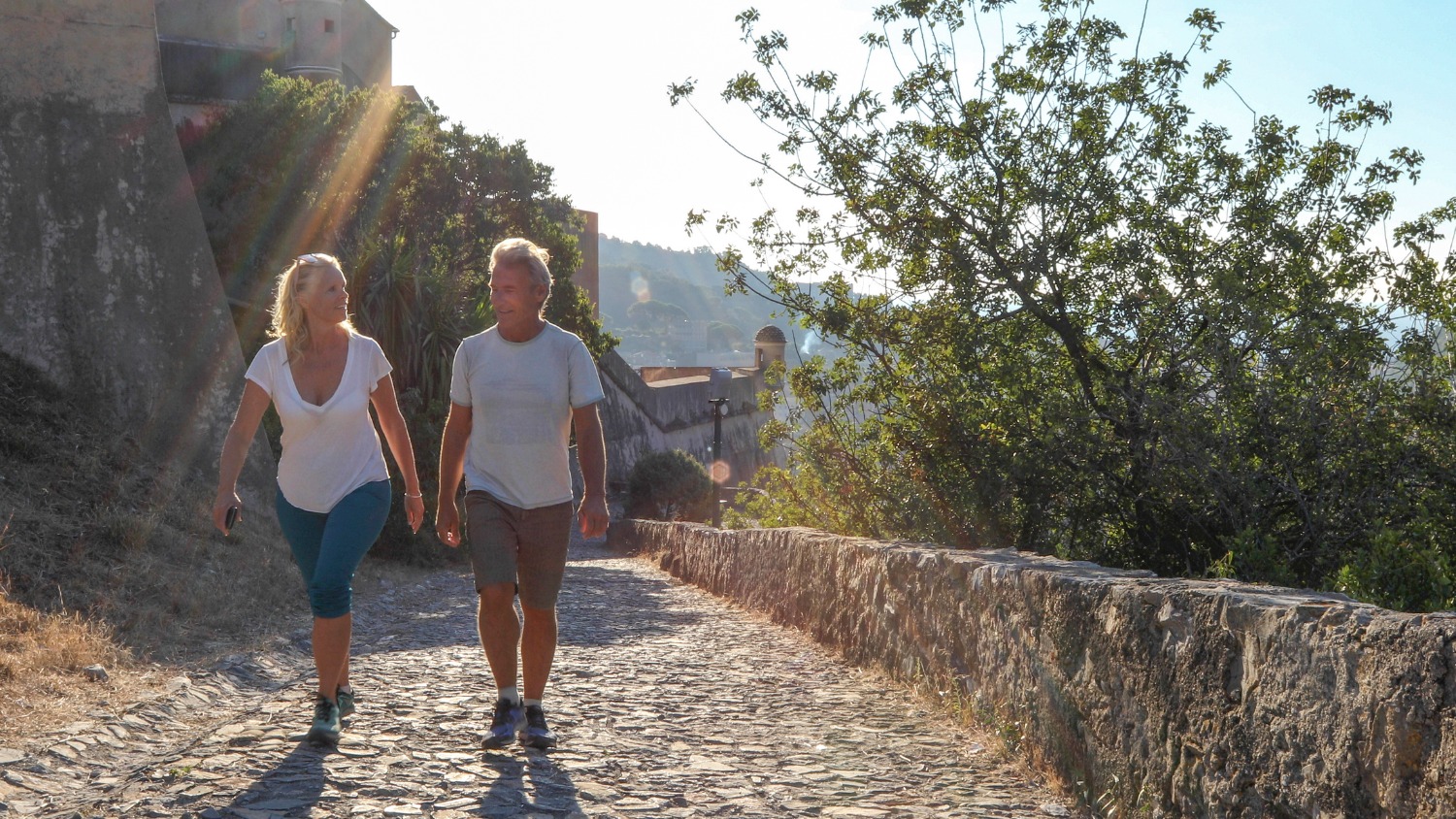
How We Survive When the Sky Falls Depends on Our Character
Those of us 60 years and older live with the sobering knowledge that sometimes the sky really does fall. There are plenty of Chicken Littles running around, frantic about a crisis at work or a broken automobile, but let’s be clear.
The very real challenges of everyday life have little in common with the profound, life-altering crises of lost loved ones, serious injury, severe illness, or betrayal. Daily trials may cause sleepless nights, but by our age, few of us have escaped being tasered by something huge that leaves us changed forever.
People react differently to crises. My husband has to stay busy – no sitting in the hospital chair holding a hand or drinking tea. He survives by doing what he thinks needs to be done, which involves everything from gassing up the car to repairing the screen door.
In reaction to her mother’s murder, a woman I know coped by eating ice cream and watching funny movies.
Different People, Different Hurt, Different Solace
Like Forest Gump, some people start running, and like Dorothy in the Wizard of Oz, some build a fantasy world to buffer the hurt. Some, having faced unimaginable tragedy, become tireless activists and advocates and work to help others confront or avoid the heartbreak that shattered their world.
Some cocoon themselves in the arms of friends. Some walk alone into the desert to feel the solitude and the burn of the sun. Some go to church and stay there.
What can possibly sustain us when every waking moment is consumed by the heat of physical or emotional pain, or by worry or regret? This seems to be a particularly relevant conversation for our 60-plus community. While tragedy can come at any time, the earth beneath our feet gets less firm as we age.
Prayer, Poetry, and the Garden
Most all of us will credit family and friends with helping to pull us through. But there’s a deep personal place only we can reach. It’s in that terrible cavern we must mix whatever elixir we can conjure to cover the wound.
When my world crashed, I was sustained by three things: prayer, poetry, and the garden. There’s nothing to fuel prayer like a crisis, and whether or not you’re religious or spiritually oriented, reaching upward and asking for whatever help might be available is a natural reaction.
But the solace of poetry might surprise you. Poetry may not turn out to be salve for your soul, but it has been for mine, so I encourage you to at least give it a try. For those seeking support, grace, and solace, I suggest starting with the poetry of the late and incomparable Mary Oliver.
For those who garden, the notion that it can save your life will be no surprise. No matter what the hurt or fear, being in the garden soothes.
Pulling weeds, humming, talking to the plants, looking at the clouds, listening to the birds, smelling the earth – it’s as though nature meditates through us and only requires that we show up and be still for a while.
The late poet May Sarton wrote beautifully of the comfort of the garden in her Journal of a Solitude:
Coping with the Change
Life-altering crises come in different packages, but all change us. When the sky falls and the earth convulses in seismic shifting, we must find some way to survive it and rebuild.
Surviving does not mean forgetting. It doesn’t mean things will ever be the same. But maybe, by sharing what has sustained us through our tragedy, we can help one another.
Let’s Have a Conversation:
What event made the sky fall for you? How did you manage in the aftermath? What helped you cope with your new reality? Do you have a favorite poet where you seek solace? Let’s begin a discussion.
Tags Inspiration







My world fell apart this year when my husband of 40 years received a diagnosis of a form of rapid moving, brain destroying, dementia. In less than 5 months he went from a healthy, active, hard working, engaged employee and family man, to passing away. It away took the love of my life, my soul, and our income. I have quickly, and thankfully, learned that grief is not something to be afraid of, it is something that moves through us and changes us, but doesn’t have to cause unending suffering.
Gratitude and pain can’t co-exist so I am very intentional about finding things to be grateful for every day.
My husband was very good at building relationships, more so than I. All of the people who meant so much to him, and the lives he invested time into, are coming back to help me. In that way, my hubby is still taking care of me. Those relationships sustain and uphold me every day.
This was so beautifully written, Susan. My thoughts go out to you. How terribly sad and traumatic. But how wonderful to see how he is still taking care of you. Thank you for sharing your story.
I survived the death of my horrible narcissist husband and was his caregiver for the year before when he was very I’ll at home. I had much compassion but no more love. The first several months I hibernated mostly and thankfully was able to be outside and in my gardens. The hard part was that only a few close girlfriends knew what I lived for 28 years. I hated pretending to other friends and family that I was heartbroken. I was finally free and have no guilt! The hardest part is trying to now figure out who I am and what I want out of life.
Diane, I know exactly what you mean. My husband had Parkinsons and congestive heart failure, but he was in a car accident and I had to have him taken off of life support because he wasn’t expected to have a meaningful life if he recovered. I too had compassion for him but no more love and it is so hard when only a few people actually know what you live with. Although I am free and feel so much better, I feel guilty that I feel so much relief from not having to take care of him. And now after doing everything to please him…I too am trying to figure out who I am, what I want…and to realize that everything is not my fault…
Diane…I too survived a clinically diagnosed narcissist and only those of us who share that experience can truly understand one another. It’s as if you were an actor within someone else’s nightmare for, in my case, 35 years. My family didn’t believe it was happening because to them he was charming and brilliantly talented. They got tired of hearing my pleas for intervention and frankly I was so exhausted, I got tired of hearing myself complaining. True, I prayed and gardened and it brought distraction, but I believe what got us through the torture was our extreme empathy which was exactly what our narcissist was addicted to. That empathy can now be channeled for ourselves. We are warriors. I hope you find peace in a freedom well deserved.
Thank you sixty and me for the giving us survivors a place to express this stigmatized topic.
My hubby got a devastating cancer diagnosis and then passed away 7 months ago. Things were so frantic during the diagnosis and treatment that everything was focused on his survival. When he very quickly transitioned to hospice and within 48 hours a coma and death, my sky indeed fell.
Things that helped the most were our pets, music, podcasts, friends that have also endured this, and our family and friends in general. Through this intense pain and grief, it helped to believe that I needed to feel every emotion. Not avoid them or hide them. Though I had to limit myself to just a few sad things I could endure each day. And there are so many sad tasks to complete when a spouse dies.
I’ve learned that grief must be gone through, not around. It will always be a part of me, but by fully embracing it, and knowing how lucky I was to have the love of my life for 45 years, I’m learning to live in this new and very different world.
It’s so incredibly lucky to have had a love that can cause such intense grief. I’m grateful to have had that love, and am filling the hole in my life with new and good experiences. Some days are much harder than others, but I know my husband would be proud of me.
coming across this article, to me was exactly what I needed at this moment today, to know I am not losing my mind. Thank you…just turned 68 and everything seems to have hit that “fan” – so mind boggling some days. Not knowing if there is strength. But will find a way –
I love Mary Oliver! Kept by my bedside at all times.